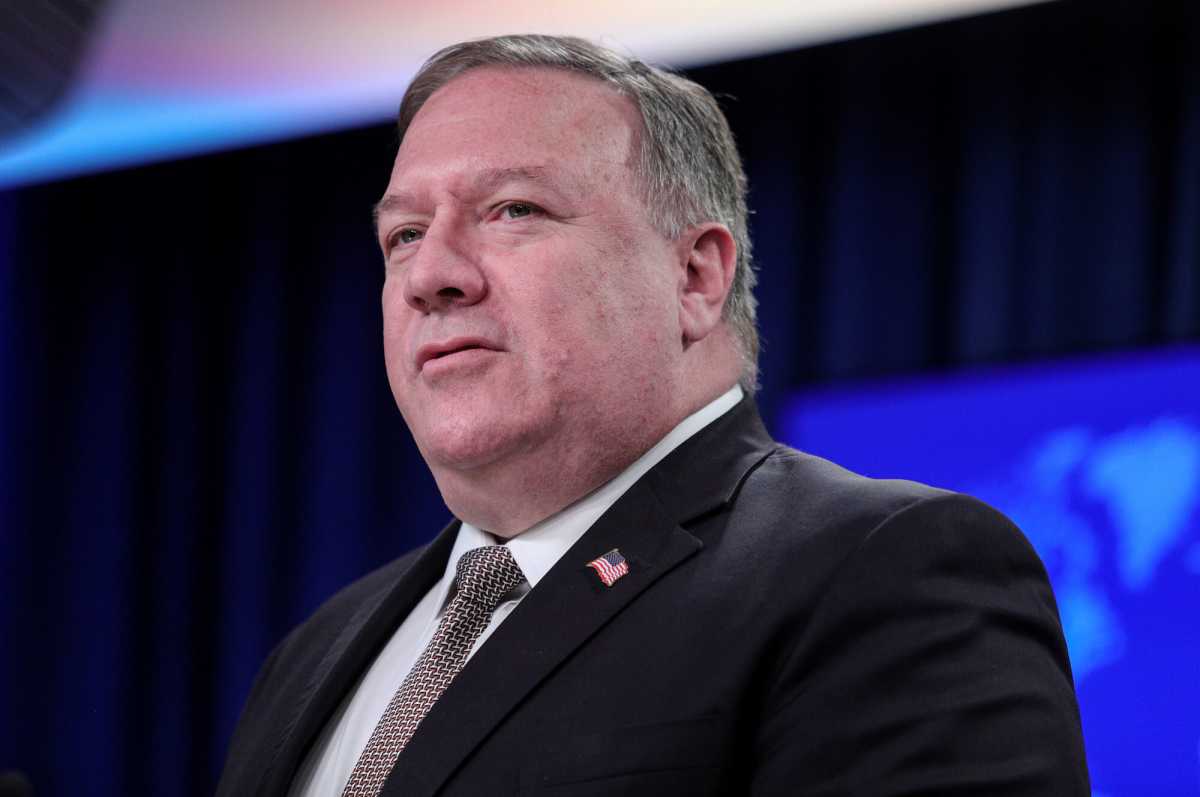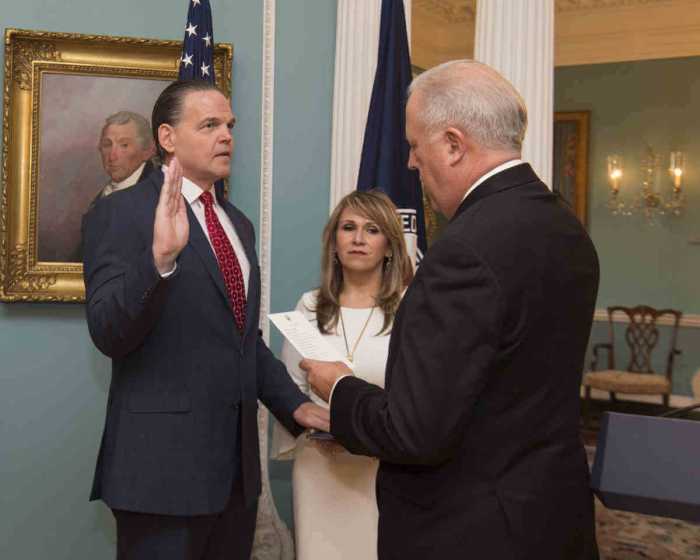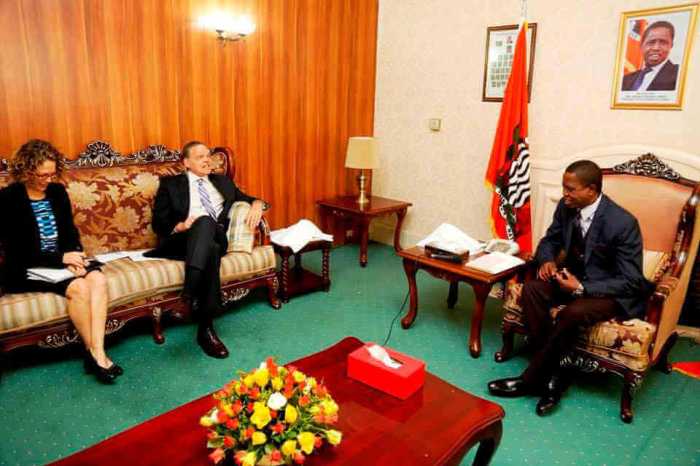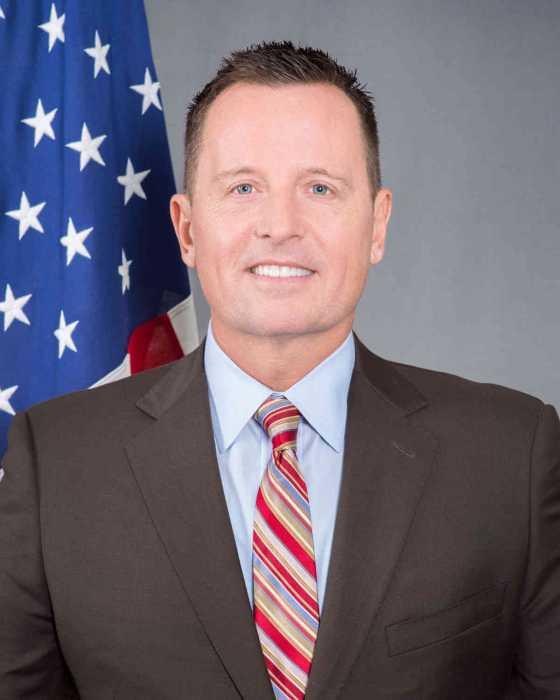One year after the State Department unveiled a new panel aimed at reassessing the role of human rights in American foreign policy, Secretary of State Mike Pompeo published the work of that group in the form of a 60-page report that questions modern-day approaches to human rights and refuses to acknowledge LGBTQ rights.
Pompeo foreshadowed the report last year when he argued that there was a need “to step back and reflect seriously on where we are, where we’ve been, and whether we’re headed in the right direction… What does it mean to say or claim that something is, in fact, a human right?”
To that end, Pompeo assembled a commission featuring individuals who have cozied up to the religious right. Among those included were University of South Carolina Professor Christopher Tollefsen, who has been hostile to women’s reproductive rights and labeled gender transition as “unreasonable,” as well as Mary Ann Glendon, President George W. Bush’s ambassador to the Vatican, who has said same-sex marriage is a “tragic” and a “radical social experiment” that serves to “impair” children’s rights.
ABC News first reported last year that Princeton Professor Robert P. George, a past chair of the homophobic National Organization for Marriage, had a “prominent role” in creating the commission.
The commission’s ultimate goal, Pompeo said last year, was to align the nation’s approach to human rights with the 1948 Universal Declaration of Human Rights (UDHR). But the report produced as part of that effort suspiciously resembled an attempt to sow confusion about the public’s understanding of human rights in the modern era.
Now the nation’s top diplomat, whose rumored 2024 presidential ambitions have been fueled in part by his secret visits to Republican donors and political figures within the last year, is following through on his pledge to reframe human rights at a time of heightened attention on racism, as well as an intersectional focus on related homophobia, transphobia, and sexism, during a summer of protests across the nation that coincides with an ongoing trail of murders targeting Black transgender women.
The report was also unveiled just weeks after the Supreme Court established sexual orientation and gender identity workplace discrimination protections under the definition of sex in Title VII of the 1964 Civil Rights Act.
Rather than zeroing in on the rights of marginalized groups, however, the report focused on asserting that property rights and religious rights are “foremost among the unalienable rights” and further suggests there is an ongoing erosion of both of those rights, saying that “a political society that destroys the possibility of either loses its legitimacy.”
The commission’s criticism of overly broad definitions of fundamental human rights included praise for the framers of the UDHR for keeping the list of nine core international human rights treaties “more tightly circumscribed” so that it “would accord higher political importance to each of the rights and would reduce the conflicts among rights claims, conflicts that could dilute the realization of any particular rights and of rights in general.”
The report went on to list different United Nations agencies, organizations, treaties, and declarations codifying human rights in such a way that appeared to suggest that there are far too many rights initiatives in existence.
“There is good reason to worry that the prodigious expansion of human rights has weakened rather than strengthened the claims of human rights and left the most disadvantaged more vulnerable,” the report stated. “More rights do not always yield more justice. Transforming every worthy political preference into a claim of human rights inevitably dilutes the authority of human rights. Accordingly, the United States should be open but cautious in its willingness to endorse new claims of human rights.”
In his public remarks about the report, Pompeo sounded as out of touch as ever, skipping past somtimes vague language in the commission’s written report and directly attacking The New York Times’ “1619 Project” as all but fake news.
“The New York Times’s 1619 Project — so named for the year that the first slaves were transported to America — wants you to believe our country was founded for human bondage,” Pompeo said in moving beyond his role as America’s chief international diplomat and diving headfirst into a freighted domestic political debate. “They want you to believe America’s institutions continue to reflect the country’s acceptance of slavery at our founding. They want you to believe Marxist ideology that America is only the oppressors and the oppressed. The Chinese Communist Party must be gleeful when they see The New York Times spout their ideology.”
Pompeo, clearly not bothered enough by the founding fathers’ slaveholding ways, then assailed those targeting statues of such historic figures.
“The rioters pulling down statues thus see nothing wrong with desecrating monuments to those who fought for unalienable rights — from our founding to the present day,” Pompeo said. “This is a dark vision of America’s birth. I reject it. It’s a disturbed reading of our history. It’s a slander on our great people.”
According to CNN, the report will undergo a two-week commenting period, after which a final version would be unveiled.
Pompeo’s anti-LGBTQ work dates back to his days in Congress, where he slammed the Supreme Court’s marriage ruling in 2015 as an “abuse of power” and once railed against letting queer folks serve in the military, saying, “We cannot use the military to promote social idea that do not reflect the values of our nation.”
To sign up for the Gay City News email newsletter, visit gaycitynews.com/newsletter.


































